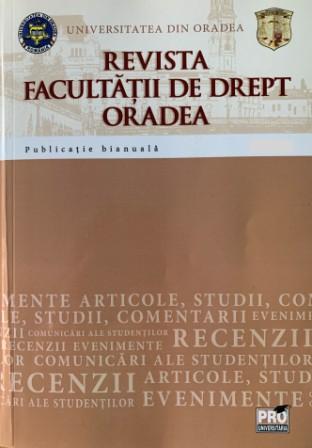Filiația și reproducerea umană artificială
Filiation and Medically Assisted Human Reproduction Techniques
Author(s): Cosmina Pop, David Dan DrăganSubject(s): Civil Law, Human Rights and Humanitarian Law, Family and social welfare
Published by: Editura Pro Universitaria
Keywords: maternal filiation; paternal filiation; MAHR; biological mother; child;
Summary/Abstract: The European Convention on Human Rights guarantees in article 8 the fundamental right to ”respect for family life”, also being ensured in the Romanian Constitution in article 26. Family life as we know it so far has undergone a number of drastic changes. Gender ideology and biotechnology have developed at high speeds in the last decade, society's desires needing a legal and technological expansion, a radical change in social customs and vision. According to article 60 of the current (Romanian) Civil Code „the natural person has the right to dispose of itself if they are not infringing the liberties and freedoms of others, the public order or morals.” Laws of this type, as well as philosophies based on the principle of self-determination of the person, conveyed in the public space over time, have brought today's society face-to-face with new ideas, which are no longer just that but also a reality. The family, as it was until now, has undergone changes. Not to mention the exclusive existence of the monogamous family. We know the existence of families of people of the same gender, families formed by unmarried couples, the family consisting of an unmarried mother or father and a child conceived by medical human reproduction (in vitro) and many other variations. Both technological and ideological evolution has led to the change and formation of a new concept of the family: that family can exist in many shapes and forms. Also, the idea of giving birth to a child through a surrogate mother, that is, a woman who would carry the child for 9 months, and then to hand it over to the family with whom she contracted with, began to emerge. The question is: how does the law and the legislator view this situation? Does it fully regulate these types of newly formed families? How can the legislator contribute to the development of society? The family is foundation of a society. Without a family, there is no society. It all starts with this and it will never disappear. In our paper, we want to show the evolution of biotechnology and how it facilitates the desires and needs of a rapidly and continuously changing society.
Journal: Revista Facultății de Drept Oradea
- Issue Year: 1/2020
- Issue No: 1
- Page Range: 188-194
- Page Count: 7
- Language: Romanian

